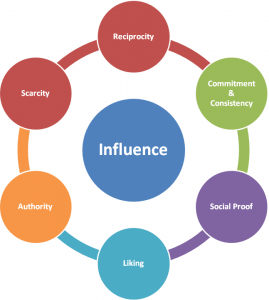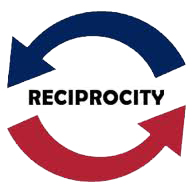
1)Commitment
Once people establish a commitment, they are more likely to continue the transaction. When a Toyota salesperson grabbed a potential customer and explained the details of the car the customer is interested with, there is a high possibility that the customer will buy the car instead of looking to other places.
2)Consistency
If 10000 people are using Beats Audio headphone and they make excellent comments, then, it is likely that the 10001th customer will like a Beats Audio headphone too.
3)Liking
People like to be liked. Also, they are easily persuaded by the person they like compared to the person they are not familiar with. For example, companies use sales agents from within the community employ this principle.
4)Authority
People tend to obey to legitimacy. In, 1960s, a famous experiment called Milgram experiment was being conducted, showing that people are likely to obey to professional’s command even they feel bad for shocking other people. In real life, marketers often use professionals to prove the superiority of their products.
5)Scarcity
Scarcity generates extra value in the eyes of consumers. In other words, scarcity can generate instant demands. Marketers often use “Limited Time Only” to create a sense of scarcity in order to encourage customers to buy more.
6)Social Validation
People tend to do what they see the others are doing. For example, if a person sees everybody is using Apple product, it is very likely that the person will purchase an Apple product as well.
7)Reciprocity
People tend to give return to somebody who has helped them before. For instance, you signed an insurance contract with a very good friend (an insurance agent) who helped you a lot before.
In a commercial, there could be 4-5 principles working together to promote sales.
Video Link: https://www.youtube.com/watch?v=_4ZcStMsss8


